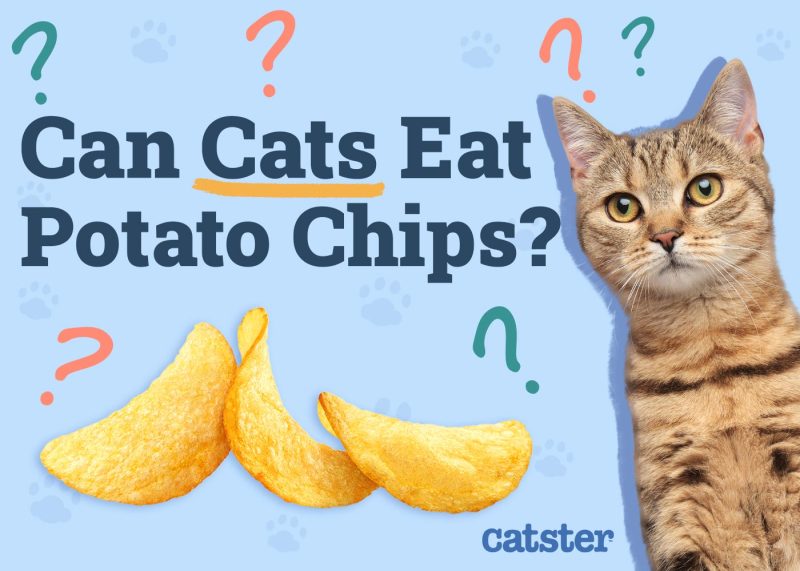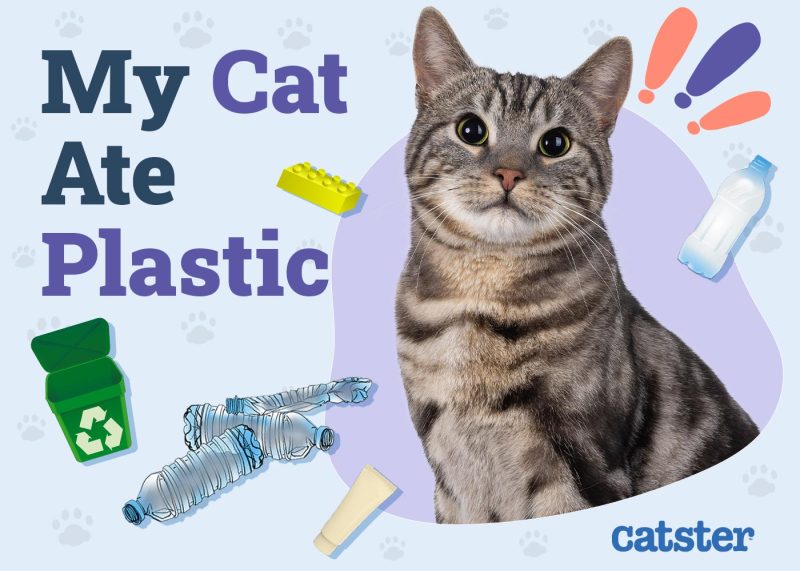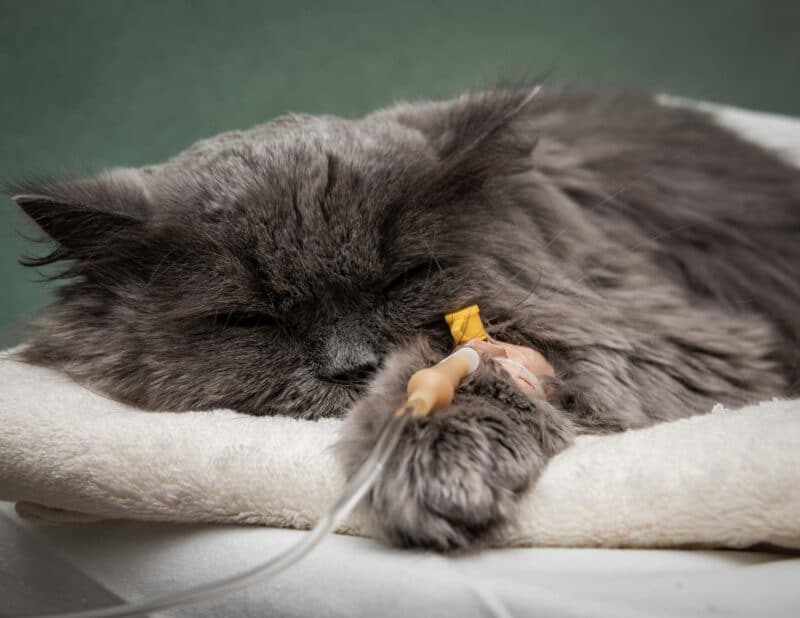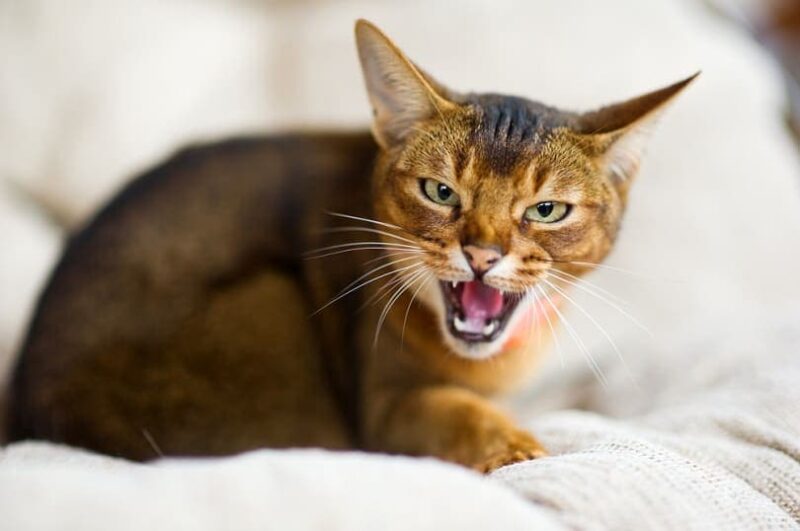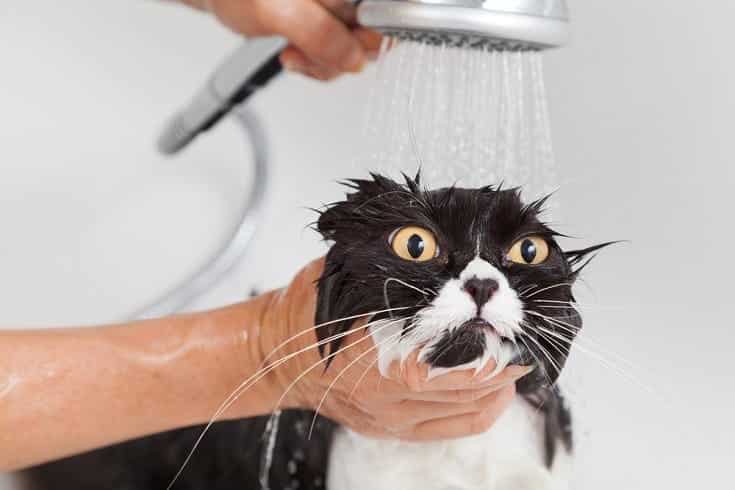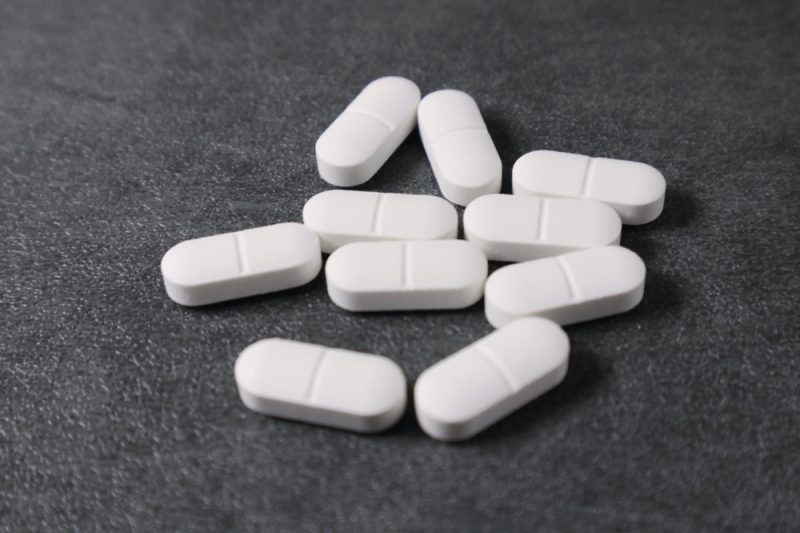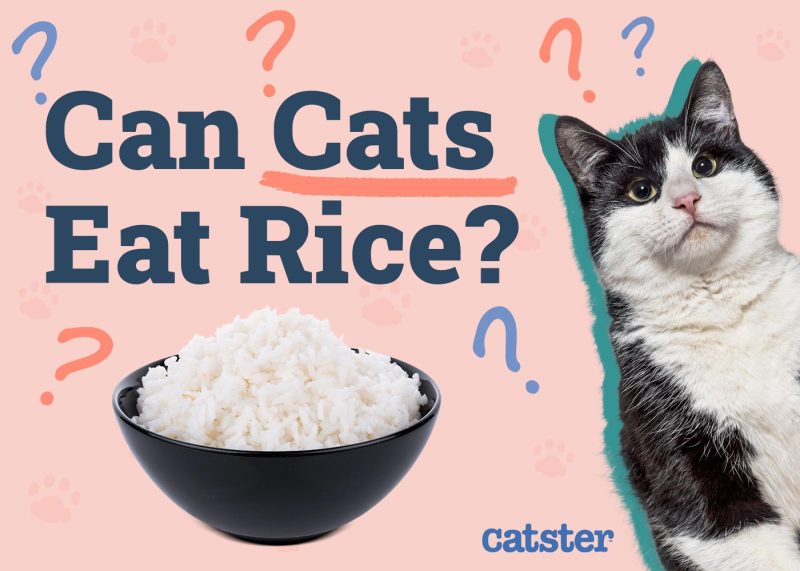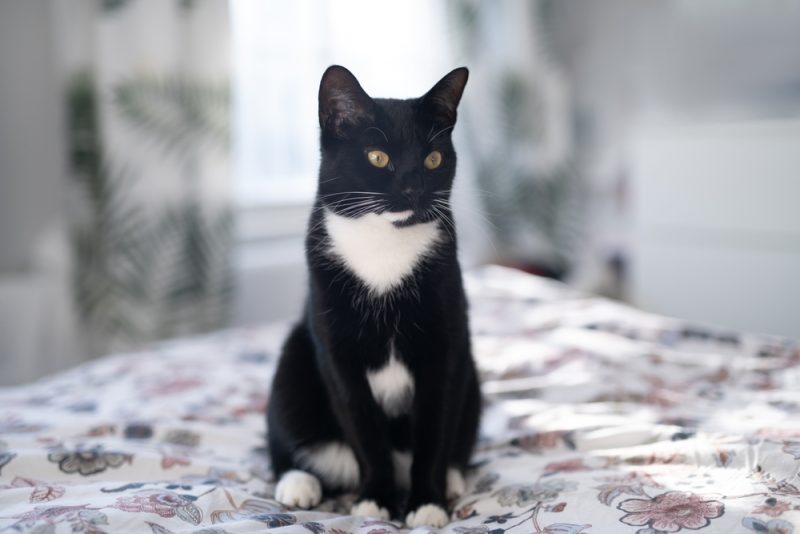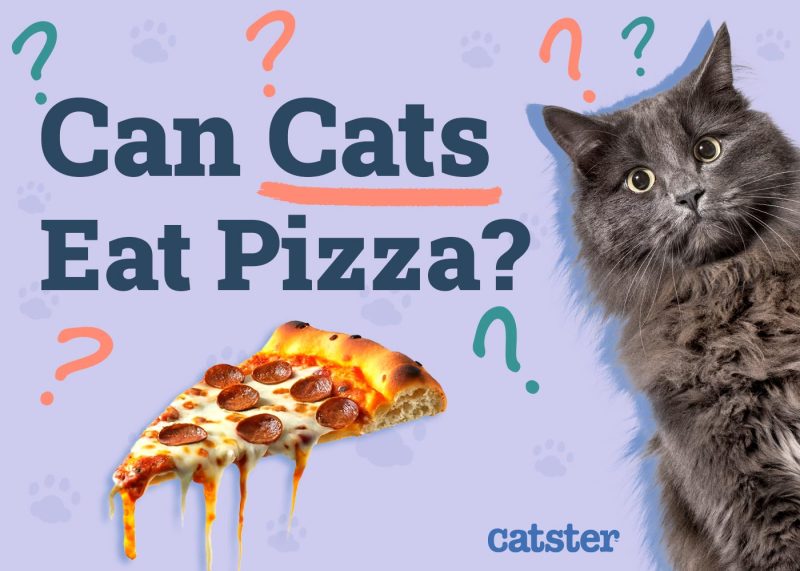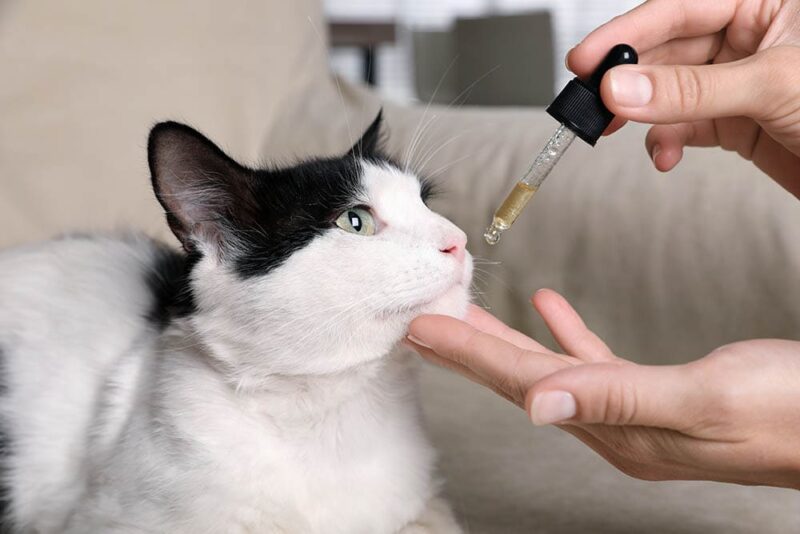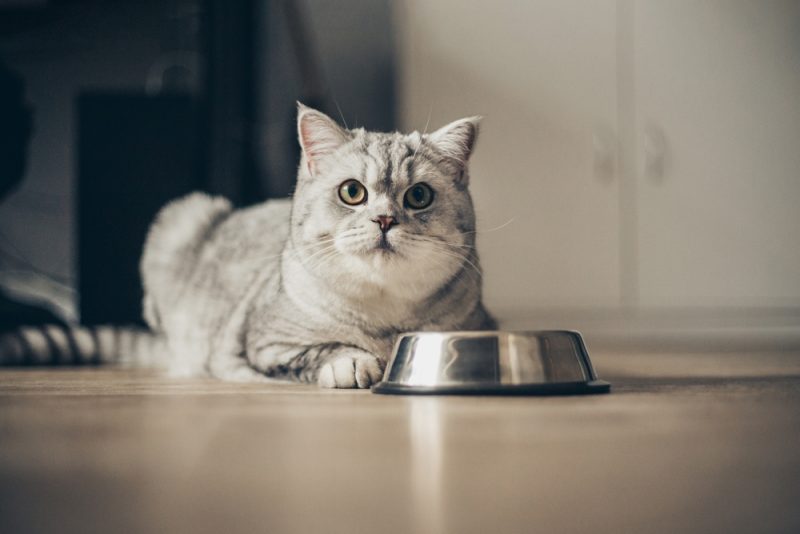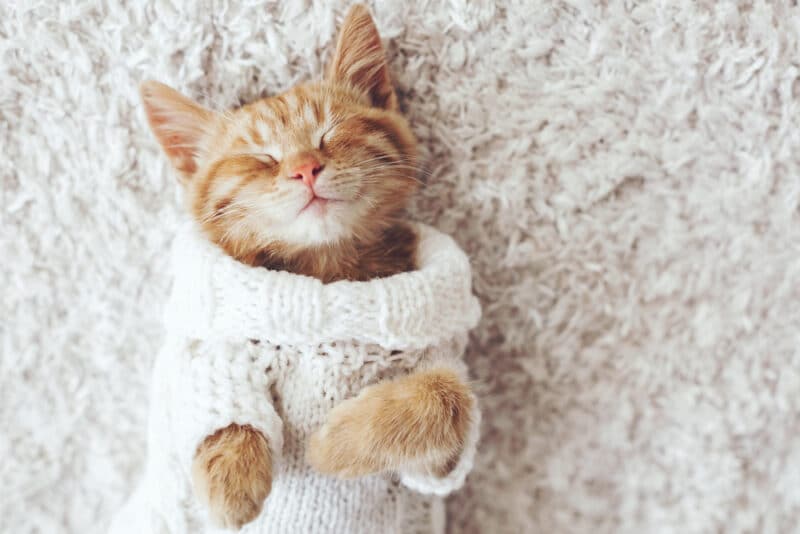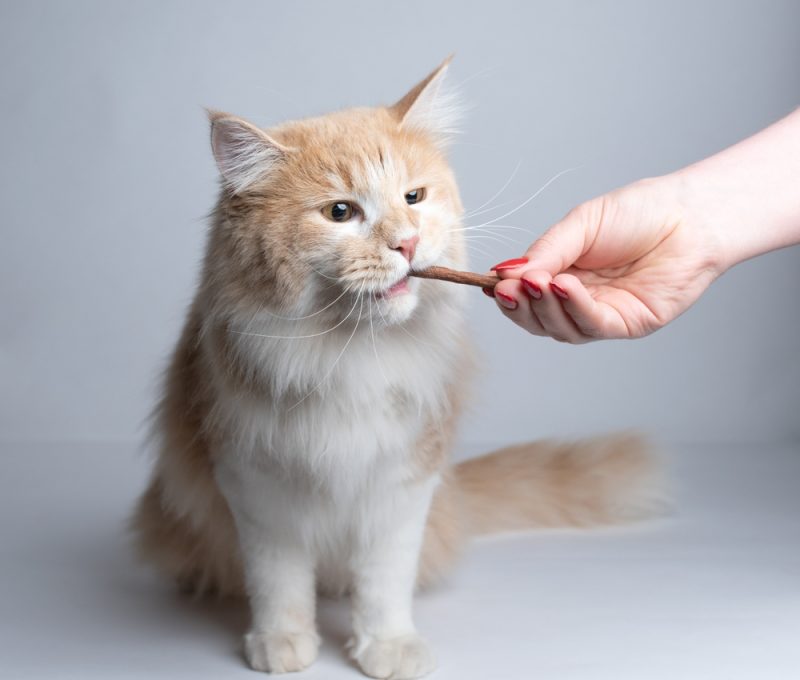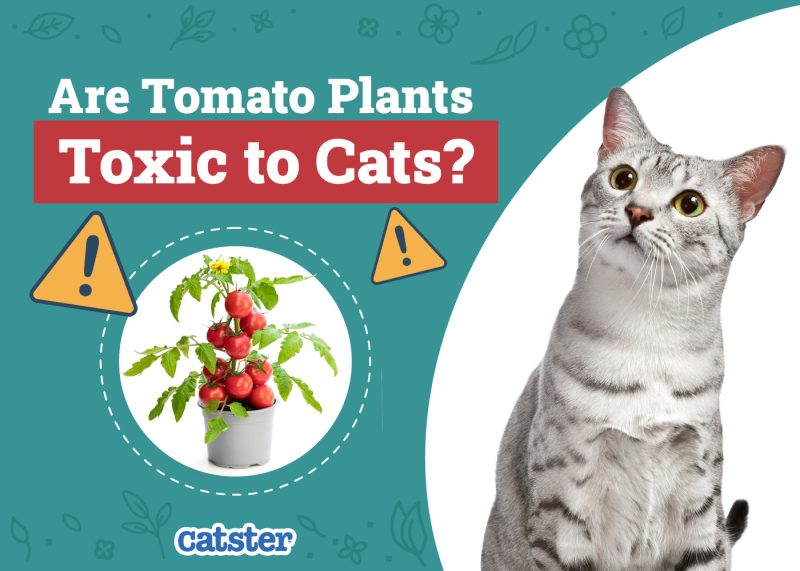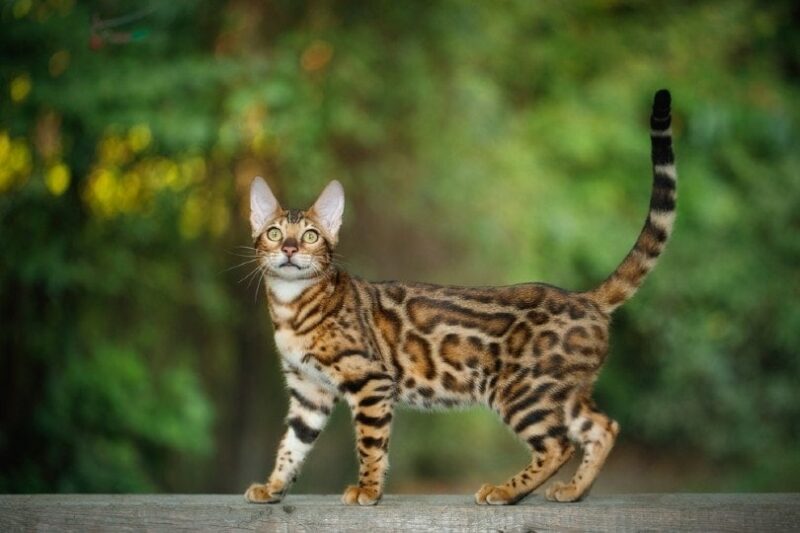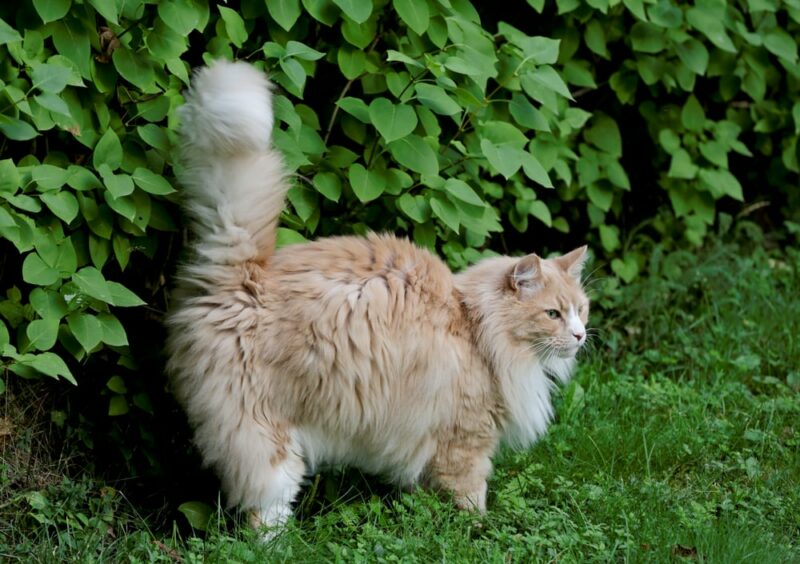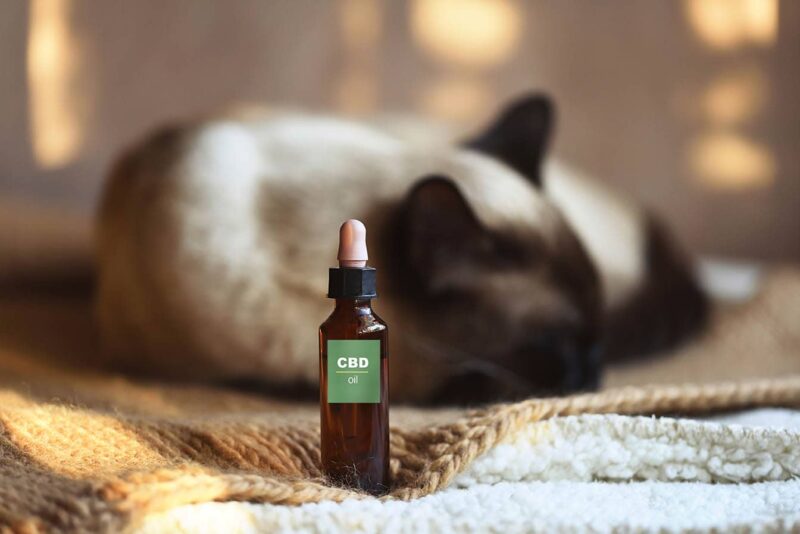You settle down in front of the TV, open your bag of potato chips, and crunch your way through your favorite salty snack. However, your cat is sitting at your feet giving you “Puss n’ Boots” eyes and you wonder if it’s okay to give them a few chips.
The good news is that unseasoned potato chips are not dangerous or toxic for your cat; however, they are not recommended. Cats should not eat potato chips, it’s as simple as that.
Before offering your cat any human food, it’s important to consult with a veterinarian. Even if some ingredients are not toxic to cats, they may not be safe or appropriate based on the individual cat’s health and requirements.

Can Cats Eat Potato Chips?
As most of us already know, potato chips are considered to be an unhealthy snack. They are high in salt, which can predispose us to a number of health issues, such as high blood pressure and kidney disease. Chips are also high in saturated fats, which can have a negative impact on your health in a variety of ways, including obesity and heart disease. If you are concerned about your own health while eating chips, then you should consider your cat’s health, too, as chips are not an appropriate food for them in any way.
Unlike cats, humans can eat an entire bag of potato chips without any immediate consequences. We also have the advantage of understanding the ramifications of eating chips regularly, but our cats rely on us to take care of them and keep them healthy.
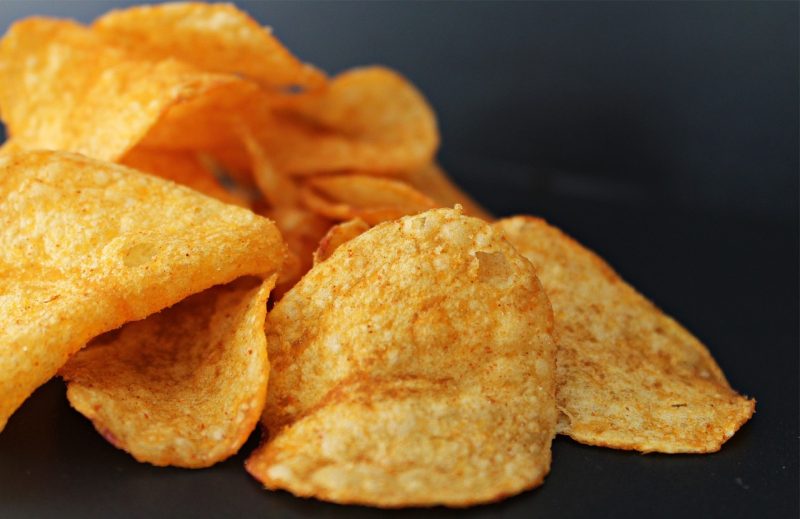
Chips Have Zero Nutritional Value
Chips are practically devoid of nutrients. The process of turning potatoes into chips involves washing, blanching (quickly boiling followed by an ice bath), and then deep-frying until golden brown and crispy. Any nutrients that are found in potatoes are lost during this preparation, which means that chips are unhealthy and have no real redeeming qualities (except for how tasty they are for us humans!).
Excess Salt and Flavorings Are Not Great for Cats
Excess salt can make your cat very thirsty and cause excessive urination. Very rarely, sodium chloride poisoning may occur; however, this situation is quite uncommon. If your cat exhibits signs such as lethargy, vomiting, diarrhea, tremors, seizures, or coma, it could be a sign that your cat has eaten too much salt. However, this is very unlikely to occur with your cat stealing a piece of a potato chip off the floor, and they would need to ingest a significant amount for this to become a problem.
Another important consideration can include the flavoring on the chips. Some chips contain ingredients that are toxic or harmful for cats, such as onion, garlic, and cheese.
Garlic deserves a special mention, as it is very toxic for cats. Cats are far more sensitive to garlic than many other pets, including dogs. As such, cats shouldn’t be offered any garlic at all. Onions are less toxic than garlic for cats but are nonetheless still toxic. The powdered form of these spices is often very concentrated (therefore very toxic) and used in products such as chips, making some flavored or seasoned chips potentially toxic for cats.
Learning about what your cat can and cannot eat is a crucial part of keeping them happy and healthy! Choosing a bowl to serve cat-friendly foods in is another important decision pet owners face. Satisfy the specific needs of your cat with the innovative design of the Hepper NomNom Cat Bowl. Learn why it’s our (and our cats!) favorite food and water dish here. At Catster, we’ve admired Hepper for many years and decided to take a controlling ownership interest so that we could benefit from the outstanding designs of this cool cat company!

Chips and the Cat
Vets have provided lists for cat owners that include foods that are dangerous for your pet to eat. This includes chocolate and dairy products, which might come as a surprise to many people. We continue to see cats drinking milk in movies and TV shows, but this should be avoided to prevent a sick cat, as the majority of adult cats are actually lactose intolerant.
You will not find potato chips on any veterinarian lists of harmful or toxic food, but you will also not find any veterinarians that will tell you it’s okay to feed your cat chips, because it isn’t. Reach out to a veterinarian and ask them about safe and unsafe foods for your cat.
Need veterinary advice but can't get to the clinic? Catster recommends PangoVet, our online veterinary service. Talk to a vet online and get the answers and advice you need for your cat without having to leave your living room — all at an affordable price!

Your Cat Is a Carnivore
Cats are categorized as obligate carnivores, which means that they must have meat in their diet to survive and thrive, and they actually need very few carbohydrates and cannot taste sweet foods. A cat’s diet is high in protein and moderate in fat, while having a lower carb content than dog food, depending on their age, stage of development, health, and lifestyle.
Cats have a lower enzyme activity for digesting carbs than dogs but will still efficiently use carbs as a source of energy if properly prepared at adequate amounts as a part of their balanced commercial diet, while they cannot utilize fructose from fruit. It may be less effective for cat stomachs to break down excessive carbs, and feeding them food with high carbohydrates may not be indicated, particularly in cats suffering from certain digestive issues and diabetes, although there is currently limited evidence of harmful effects that carbs may have on cats.
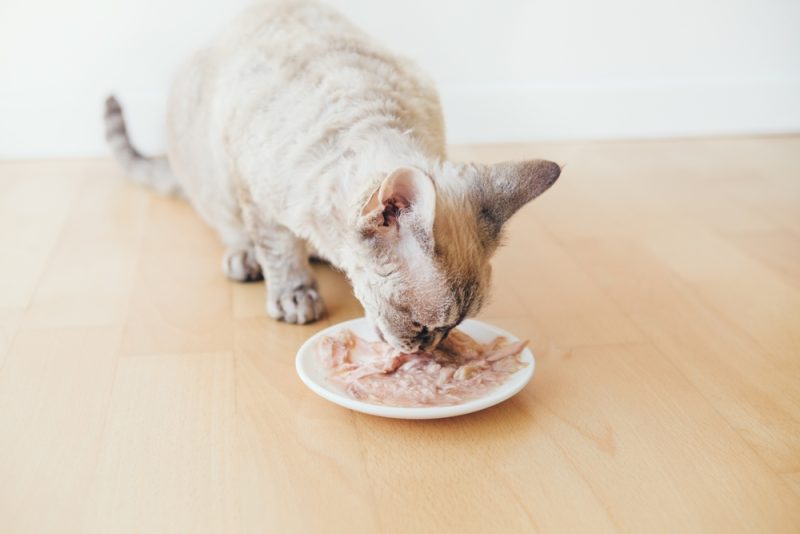

Conclusion
Always avoid giving your cat chips or any other inappropriate human snacks. A small piece of a potato chip on the floor that your cat may nibble on is highly unlikely to cause them any real harm, but it is a habit you do not want to start.
Cats are carnivores and require a high amount of a well-balanced protein food source, so chips, being high in carbs, salt, and fat content, are not a great food option to share with your cat. They may not be toxic to cats but can certainly contain harmful ingredients. Always consult with your veterinarian if you have any questions or concerns regarding your cat’s health and diet.
While you might feel like Scrooge by not sharing your food with your cat, they will thank you for a long and healthy life at the end of the day.
You might be interested in:
